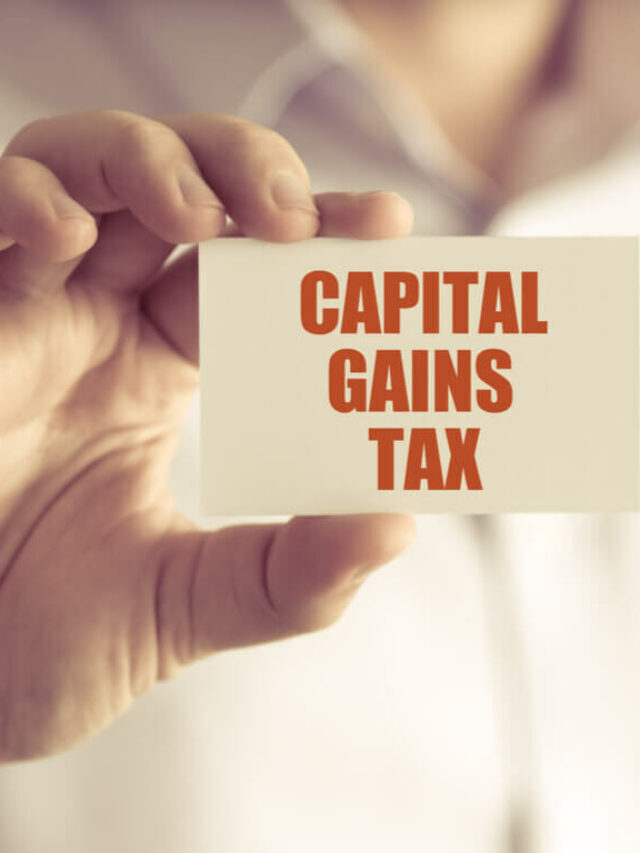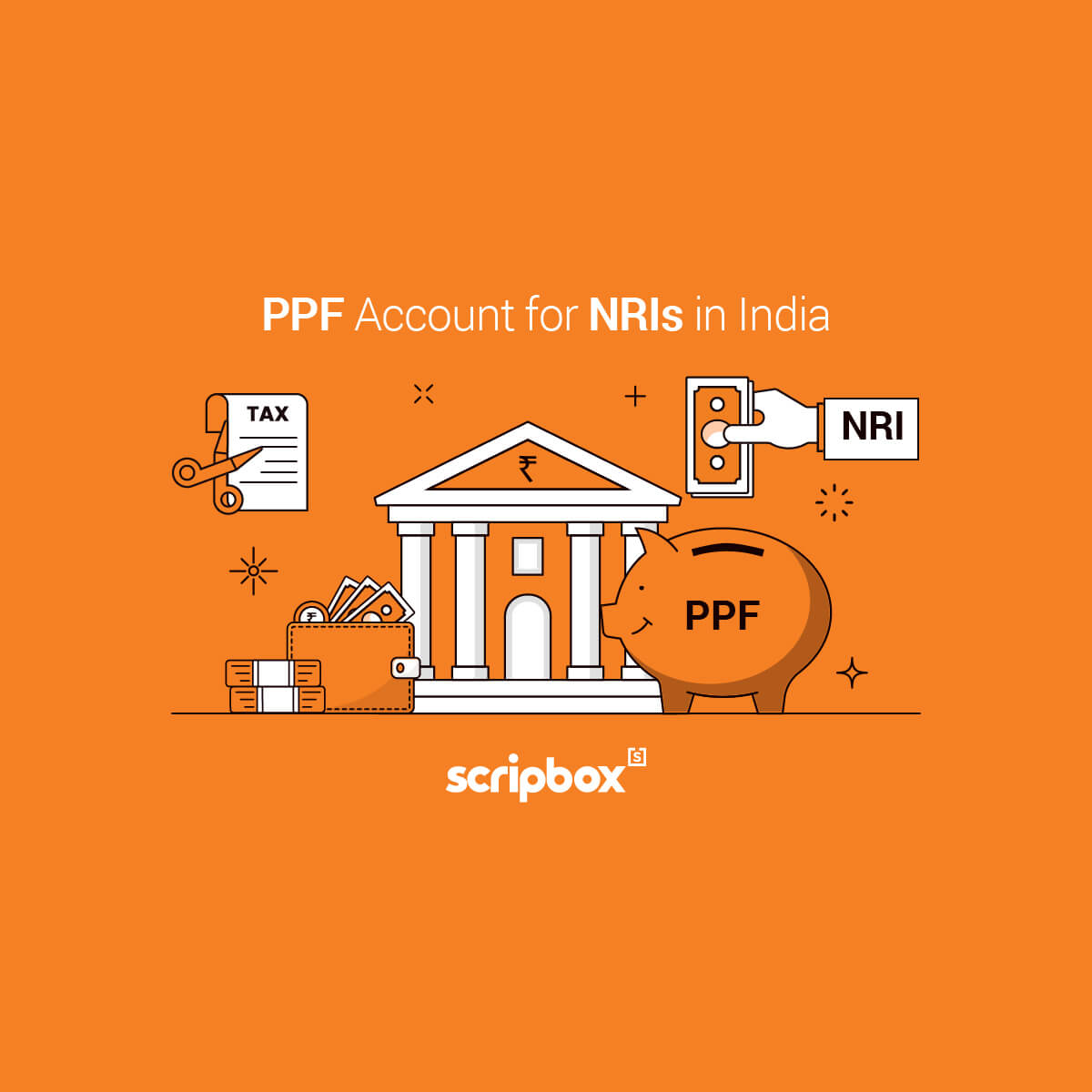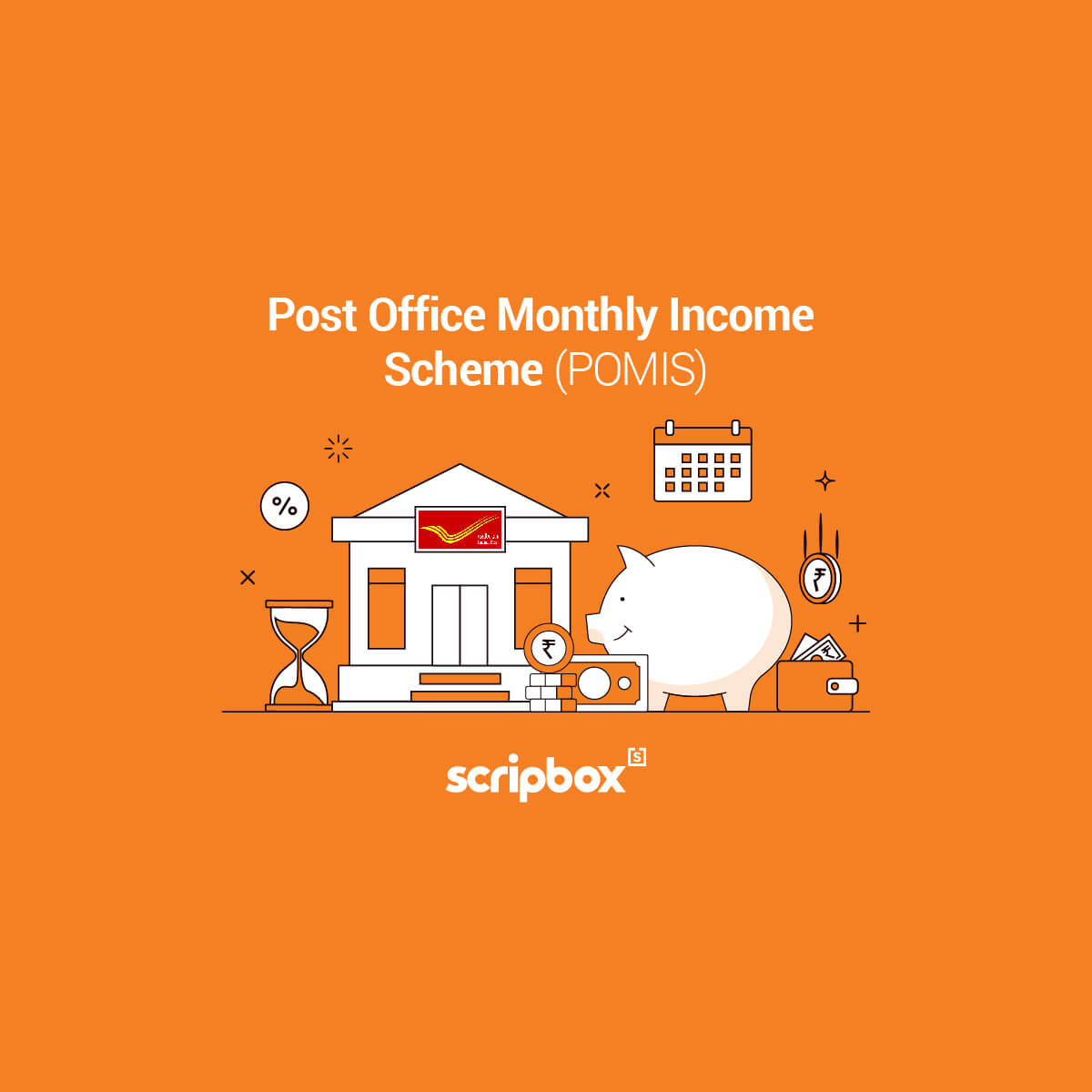What is SCSS?
Senior Citizens Savings Scheme (SCSS) is a post office savings scheme for senior citizens that offers safety and regular income to its investors. It is also a tax saving plan. It suits retired investors looking for a low risk investment option. The investment in SCSS is eligible for tax exemption under Section 80C. However, interest is subject to tax as per individual tax slab.
| Scheme Name | Senior Citizen Saving Scheme |
| Interest Rate | 8.20% p.a. |
| Tenure | 5 Year |
| Age | Above 55 Years |
| Maximum Investment | Rs. 30,00,000 |
| Minimum Investment | Rs. 1000 |
SCSS Interest Rate 2026
The SCSS interest rate for current quarter Oct 2023 to Dec 2023 is 8.20% p.a. and are reviewed every quarter. And the interest payment is made every quarter. The interest is taxable at the individual income tax slab rate. If the interest exceeds INR 50,000 TDS is deducted.
| Time Period | SCSS Interest Rate (% p.a) |
| FY 2023 -24 (Q3) | 8.20% p.a. |
| FY 2023 -24 (Q2) | 8.20% |
| FY 2023-2024 (Q1) | 8.00% |
| FY 2022-2023 (Q4) | 8.00% |
| FY 2022-2023 (Q3) | 7.60% |
| FY 2022-2023 (Q2) | 7.40% |
| FY 2022-2023 (Q1) | 7.40% |
| FY 2021-2022 (Q4) | 7.40% |
| FY 2021-2022 (Q3) | 7.40% |
| FY 2021-2022 (Q2) | 7.40% |
| FY 2021-2022 (Q1) | 7.40% |
| FY 2020-2021 (Q4) | 7.40% |
| FY 2020-2021 (Q3) | 7.40% |
| FY 2020-2021 (Q2) | 7.40% |
| FY 2020-2021 (Q1) | 7.40% |
| FY 2019-2020 (Q4) | 8.60% |
| FY 2019-2020 (Q3) | 8.60% |
| FY 2019-2020 (Q2) | 8.60% |
| FY 2019-2020 (Q2) | 8.70% |
Who Should Invest in a Senior Citizens Savings Scheme?
Only resident Indians can invest in SCSS. Senior Citizens Savings Scheme suits investors who are retired and are also looking to save tax under Section 80 C. Government backs the SCSS scheme and hence falls under low risk investments. The scheme guarantees return. Since risk in SCSS is comparatively low, investors who understand and can absorb this can invest in it. Investors who prefer stable returns and regular income can also invest in the Senior Citizens Savings Scheme. However, to invest in this scheme, one has to be eligible. Below is the eligibility criteria of SCSS.
Post Office Senior Citizen Saving Scheme (SCSS) Rules
Following are the SCSS rules and guidelines:
The depositor has to be 60 years old to be eligible for opening the SCSS account. Individuals who are past 55 years and less than 60 years can also open an SCSS account if they have retired on superannuation or under Voluntary Retirement Scheme. However, they have to open the account within 30 days of receiving the retirement welfare. Also, the investment amount should not exceed their retirement benefits.
- SCSS has a lock-in period of five years.
- SCSS interest rates are paid out at the end of each quarter. The current interest rate is 8.20% p.a.. The accumulated interest is paid on the first working day of January, April, July and October.
- Depositors can manage more than one account individually or jointly.
- One can hold a joint account along with their spouse.
- The deposit amounts have to be in multiples of INR 1,000. Also, the maximum limit for the SCSS account is INR 30,00,000.
- Investors can hold any number of accounts, provided the maximum amount does not exceed INR 15 lakhs.
- Depositors can open the account with cash if it is less than INR 1,00,000. For higher deposit amounts, one can do it only through a cheque. For cheque payments, the date of realization of cash in the Government Account is the date of account opening.
- Depositors can nominate a nominee for their SCSS account.
- SCSS accounts can be easily transferred from one post office to the other.
- The interest received can be withdrawn using PDCs or the Money Order system at the post office.
- Premature withdrawals are allowed after one year of account opening. For withdrawals made after one year, 1.5% of the total deposit value is deducted as a penalty. While for withdrawals after two years, a 1% penalty on the deposit value is deducted.
- Post maturity of the SCSS account, the investor can extend their investments for another three years. During these three years, premature withdrawals are not penalized.
Eligibility for SCSS
The Senior Citizens Savings Scheme is open to all resident Indians. However, there are additional criteria that investors have to meet.
- Residents aged 60 and above only can invest in this scheme.
- Individuals aged 55 but below 60 can also invest in this scheme. However, they should have been retired according to the VRS and superannuation rules. Also, they will have to open the SCSS account within one month from the date of receipt of retirement benefits.
- Retired defense personnel can also apply to this scheme irrespective of the above age limit. However, they have other sets of terms and conditions to fulfill.
- Non-Resident Indians (NRIs) and Persons of Indian Origin (PIOs) are not eligible to invest in the Senior Citizens Savings Scheme.
- Also, Hindu Undivided Family (HUF) members are not eligible to invest in the Senior Citizens Savings Scheme under these rules.
Tenure and Premature Withdrawal of Fund
Post Office Senior Citizen Saving Scheme has a tenure of five years. However, one can extend their investment in the scheme for another three years. Also, the interest rate for the extended tenure would be at the prevailing rate.
For the extension of the scheme tenure, the investor has to submit a form. Form B needs to be filled by the investors and submitted at the branch. Also, the extension of the scheme tenure is allowed only once.
SCSS accounts allow premature withdrawals; however, these come with penalties. The penalty varies based on the tenure of the account. Upon completing one year of account opening, the investor can prematurely withdraw the investment. Following are the penalties for premature withdrawals:
- For all investments withdrawn before completion of two years, 1.5% of the investment/deposited amount will be charged as penalty.
- If withdrawn after 2 years of account opening, a penalty of 1% on the deposited amount is charged. Also, for extended tenure accounts, there is no penalty charge after the first year.
In the event of the death of the investor (before account maturity), the account will be closed. The nominee or the legal heir will receive all the proceeds. For this, the legal heir or nominee has to fill out a form and submit it along with the death certificate.
Tax on SCSS
Post Office Senior Citizen Saving Scheme is one of the most secure investment options for senior citizens. As the Government backs the scheme, the security it offers is very good. Also, it offers good returns and provides tax benefits too. The amount invested in the SCSS account is eligible for a tax deduction. One can claim a maximum of up to INR 1,50,000 under Section 80C of the Income Tax Act. The investor can submit the investment proof to claim a deduction while filing income tax returns.
However, tax exemptions are applicable only under the existing tax regime. In case the investor chooses to follow the new tax regime announced in the Union Budget 2023. The tax deduction isn’t available.
The interest earned on the SCSS account is subject to tax as per the applicable income tax slab rate of the investor. If the interest income exceeds INR 50,000 in a year, then the interest is subject to TDS.
Senior Citizens Savings Scheme is a government back post office savings scheme. One can open an SCSS account in any post office. However, few authorized banks also accept investments for SCSS and help open an SCSS account. The following is the list of authorized banks.
- Bank of Baroda
- Bank of India
- Canara Bank
- Central Bank of India
- ICICI Bank
- IDBI Bank
- Punjab National Bank
- Punjab & Sind Bank
- State Bank of India
- UCO Bank
- Union Bank of India
How to Open an SCSS Account?
One can open an SCSS account at any post office or private or public banks in India. To open the account at any of the venues is more or less the same. The procedure is as follows:
- Visit the nearest public or private bank branch or post office branch.
- Fill the SCSS Form A
- Carry original identify and address proof for verification, and submit the photocopies of them
- Submit age proof (voter ID, passport, birth certificate or senior citizen card)
SCSS Account Opening Form
The SCSS application form requires some key information while opening the account:
- Name as per PAN Card
- Name of applicant’s mother/father/spouse
- For a joint SCSS account, the spouse’s name, age, and address has to be provided
- Cheque or demand draft for the desired investment amount
- Nominee name, address, and age (in case more than one nominee, all the details of the other nominees have to be provided)
Following are the documents required while opening an SCSS account:
- Aadhar Card
- PAN Card
- Voter ID
- Passport
- Electricity Bill
- Telephone Bill
- Senior Citizen Card/ Birth Certificate
- Two passport-sized photographs
Self-attested photocopies of all the documents mentioned above are required to be submitted at the account opening branch
Check Out National Saving Schemes
Comparison of Investment Options with SCSS
Senior Citizens Savings Scheme is a safe investment option available for retirement purposes. SCSS offers safety and regular income for its investors. Also, SCSS has the shortest lock in of 5 years compared to most other government schemes. Additionally, it is an excellent tax saving plan.
Therefore in this section, we are comparing SCSS to other saving schemes suitable for retirement, generating guaranteed returns, and offering tax benefits.
| Features/Scheme | Senior Citizens Savings Scheme | Atal Pension Yojana | National Savings Certificate | Post Office Time Deposit Account | Bank FD | Post Office Monthly Income Scheme (MIS) | PMVVY | Annuities |
| Investment Objective | Retirement Income | Retirement Income | Small Savings | Monthly Income | Saving | Monthly Income | Regular Income | Regular Income |
| Minimum Investment | INR 1,000 | NA, the monthly contribution is calculated based on pension selected | INR 100 | INR 100 | Varies from Bank to Bank | INR 1,500 | INR 1,50,000 | Depends on the scheme |
| Maximum Investment | INR 15,00,000 | NA, the monthly contribution is calculated based on pension selected | No Limit | INR 4,50,000 | No Limit | INR 4,50,000 | INR 15,00,000 | Depends on the scheme |
| Lock-In Period | 5 Years | 20 years | 5 Years | Five Years | 5 Years | 5 Years | Ten years | Depends on the scheme |
| Interest Rate | 8% | Returns depend on contributions | 6.80% | Depends on the tenure | Depends on the tenure | 6.60% | 8-8.3% | Depends on the contribution |
| Tax Exemption | Investment: Tax Exempted Returns: Taxable at per IT slab rate | Investment: Tax Exempted Returns: Tax-Free | Tax on investment: No tax Returns: Taxable at per IT slab rate | Investment: No Tax Exemption Returns: Taxable at per IT slab rate | Investment: Tax Exempted Returns: Taxable at per IT slab rate | The investment doesn’t qualify for tax exemption. Returns: Taxable | Investment: No Tax Exemption Returns: Taxable at per IT slab rate | Investment: No Tax Exemption Returns: Taxable |
One can use the Scripbox Income Tax Calculator to determine their tax liability. The Income Tax Calculator also suggests tax-saving investments if there is a scope for saving more tax. This will help in filing income tax returns.
Conclusion
The Senior Citizens Savings Scheme SCSS is a scheme for senior citizens. It is a long term investment option that offers regular income to its investors.
It is an ideal investment option as it guarantees income and is a low risk investment option. However, other investment options serve the purpose of long term investment and fulfill retirement goals.
Also, Debt funds are an alternative investment option for senior citizens looking for fulfilling retirement goals. Though debt funds do not guarantee returns, they have the potential to earn higher returns when compared to other retirement investment options. Also, the returns from debt funds are predictable. This is because they invest in debt instruments like government and high-quality corporate securities.
Additionally, debt mutual funds do not have any lock-in period. However, the gains are taxable. For investments held for less than three years, the returns are subject to Short Term Capital Gains. The gains are taxable at the investor’s applicable Income Tax slab rate. While for investment held for more than three years, the returns are subject to Long Term Capital Gains Tax at 20% with indexation benefit.
Check Out Post Office Tax Saving Schemes
Frequently Asked Questions
No, SCSS pays interest every quarter. The interest is calculated and credited to the investor’s account every quarter. The pay-out dates are April 1st, July 1st, October 1st and January 1st of every financial year.
Yes, both husband and wife can invest in SCSS separately or hold it jointly. The limit on SCSS account investment is INR 15,00,000. As for joint account holding, the INR 15,00,000 is attributable to the first holder. Therefore, a jointly held account does not stop the person’s spouse from opening an SCSS account. Hence a total of INR 30,00,000 can be invested by husband and wide in two jointly held accounts.
The highest interest rate for senior citizens is 8.95%, offered by Shriram Finance. Also, Suryoday Small Finance Bank and Utkarsh Small Finance Bank provides interest rates at 8.76% p.a for 2 year and 8.75% p.a for 1 year respectively for the deposit made by senior citizens.
Yes, the SCSS account can be transferred from one deposit office to the other. Investors have to apply in Form G and enclose the Passbook thereto for transferring their account. For deposit amount, INR 1,00,000 or above, a transfer fee of INR 5 is applicable per lakh of deposit for the first transfer. While INR 10 per lakh of the deposit is applicable for second and all subsequent transfers.
An individual can hold multiple SCSS accounts, however, the total investment value of all the accounts cannot exceed the maximum limit of INR 30,00,000. The lock-in period for the SCSS scheme is five years. Furthermore, investors can choose to extend their investment in the scheme for another three years.
Related Articles
- What is SCSS?
- SCSS Interest Rate 2026
- Who Should Invest in a Senior Citizens Savings Scheme?
- Post Office Senior Citizen Saving Scheme (SCSS) Rules
- Eligibility for SCSS
- Tenure and Premature Withdrawal of Fund
- Tax on SCSS
- Authorized Banks for SCSS
- How to Open an SCSS Account?
- Comparison of Investment Options with SCSS
- Conclusion
- Frequently Asked Questions

































Show comments